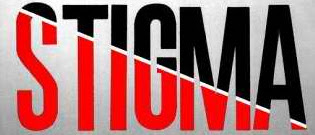Upon diagnosis of a person as HIV + he/she needs to prioritize and secure these important things to ensure that he/she is able to access proper treatment and support.
1. Secure copy of your Confirmatory/Western Blot Test and present it to a Doctor preferably an Infectious Disease Doctor. He is the right Doctor that could help you and plan out your treatment. If you don't know any then ask for someone in a healthcare facility that you trust that could direct you to one.
2. Secure and Pay your PhilHealth membership. A Person Living with HIV here in the Philippines is entitled access of the OHAT (Outpatient HIV and AIDS Treatment) Package given by PhilHealth all you need to do is to pay your PhilHealth membership fees on time.
In support of the United Nation's Millennium Development Goal Number 6 to halt or
reverse the incidence of Human Immunodeficiency Virus (HIV)/Acquired Immune
Deficiency Virus (AIDS) by 2015, PhilHealth through Board Resolution No. 1331, series of
2009 has approved die implementation of an outpatient HIV/AIDS treatment package. This
benefit aims to increase the proportion of the population having access to effective
HIV/AIDS treatment and patient education measures.
A.General Rules
1.The Outpatient HIV/AIDS Treatment (OHAT) Package will be paid through a case
payment scheme. Annual reimbursement is set at 30,000 pesos per year.
2.Only confirmed HIV/AIDS cases requiring treatment shall be covered by the package.
3.Package shall be based on Department of Health (DOH) guidelines on anti-retro viral therapy
among adults and adolescents with human immunodeficiency virus infection. All
treatment hubs in accredited facilities are required to follow the guidelines set by the DOH.
B.Specific Rules
1.Covered items under this benefit are drugs and medicines, laboratory examinations including Cluster
Difference 4 (CD4) level determination test and test for monitoring of anti-retro viral drugs (ARA7)
toxicity and professional fees of providers
2.The package will be released in four (4) quarterly payments; each sub-package is worth 7,500
pesos payable to the recognized treatment hub of accredited facilities. A maximum of four (4)
treatment sub-packages per year may be claimed by the treatment hub.
3.Each quarterly claim is covered by the rule on single period of confinement computed from die date
of consultation. Any additional claims filed within this same period for the same reason will be denied.
4.Only die actual quarters wherein services were provided in a year will be reimbursed.
5.Each quarterly claim shall be charged one (1) day against the 45-day annual limit or a sum of 4 days
per year.
6.In cases of transfer from one treatment hub to another, PhilHealth will still reimburse provided:
a.The facility that the patient was transferred to is also PhilHealth accredited.
b.A referral letter from the referring facility to the receiving facility is accomplished.
c. The Corporation will reimburse the facility prior to the transfer .
3. Baseline tests such as CD4, Viral Load, Blood Chemistry and other tests requested by the doctor are the most crucial tests of all because this will be recorded and will be a basis to your future tests result in order to know the disease progression.
CD4 (Cluster Difference 4)
Usually, the CD4 test is used to determine when a person should start
treatment.
HIV attacks a type of immune system cell called the T-helper cell. The
T-helper cell plays an essential
part in the immune system by helping
to co-ordinate all the other cells to fight illnesses. HIV damages
and
destroys T-helper cells; as a result, there are fewer cells available
to help the immune system. A
major reduction in the number of T-helper
cells can have a serious effect on the immune system.
A CD4 test measures the number of T-helper cells (in a cubic millimetre
of blood) which is known as
a CD4 count. Someone who is not infected
with HIV normally has between 500 and 1200cells/mm3.
In a
person infected with HIV, the CD4 count often declines over a number of
years. HIV drug
treatment is generally recommended when the CD4 test shows
fewer than 350 cells/mm3. World
Health Organization (WHO)
2010 guidelines recommend starting treatment for all patients with CD4
counts of less than 350 cells/mm3 in all
countries. Although most resource-limited countries
aim to
follow these guidelines, a number still observe the WHO's 2006
guidelines, which recommend starting
treatment at less than 200
cells/mm3.
Some countries may have treatment guidelines which differ from WHO
recommendations.
For example, although USA treatment guidelines state
that treatment should be initiated in all patients
with a CD4 count less than 350 cells/mm3 they also recommend treatment for patients
with a CD4
count between 350 and 500 cells/mm3.
If there are complications, such as if the patient has hepatitis B, an AIDS-defining illness or is
pregnant,
guidelines usually recommend that treatment is started
earlier.
VIRAL LOAD (VL)
Viral load refers to the amount of HIV in the blood. If the viral load
is high, T-helper cells tend to be
destroyed more quickly. Therefore,
the aim of antiretroviral treatment is to keep the viral load as low
as possible.
In places where it is available, a viral load test is carried out
shortly after antiretroviral treatment is
started. If the treatment is
working effectively, the viral load will drop to the undetectable level
– below
50 copies/ml. Ideally this will happen within 24 weeks of
starting treatment, but for some it can take
3 to 6 months. On the
other hand, some people never reach undetectable.
Viral load tests are then carried out every few months. As some viral
load tests can produce slightly
different results on the same sample of
blood, the results are monitored over a period of time.
FOR MORE INFORMATION ON THESE, PLEASE CONSULT YOUR DOCTOR.
4. Plan out your Healthy Lifestyle. Proper Diet, Exercise, 8hours of Sleep, etc. and an Optimistic Outlook in life would really help you to improve your immune system. Also having diversion techniques to avoid Stress and Depression will also help improve your immune System as well.
5. Look for a SUPPORT GROUP. Weather disclosing to a person whom you can trust, it could be a member of the family or a close friend. It is best if you look for a Support Group for PLHIV nearest to your area. HIV Support Groups are brought up to help us and to provide us the over-all support that we need.
List of Support Groups
The Positive Action Foundation Philippines Incorporated,
better known as PAFPI, is an organization that is devoted into helping
those Person Living With HIV/AIDS (PLWHAs) and their families in coping
with their situation involving the HIV/AIDS virus. PAFPI was formed in
1998 by persons living with HIV and AIDS and uninfected persons with a
view to empower persons with HIV and AIDS and their families to live a
normal, happy and productive life in the mainstream of supported
society.
ADDRESS: 2613 to 2615 Dian Street, Malate, Manila
LANDLINE: +63 2-404-2911, 528-4531
FAX: +63 2-567-3506
E-MAIL: positiveactionfoundation@yahoo.com , pactionphil@netscape.net
WEBSITE: www.pafpi.com
Pinoy Plus Association is the
pioneer organization of PLHIV in the Philippines. It is a support group
dedicated to the welfare of PLHIV in the country.
Pinoy Plus as
an organized community of positive individuals, answering to the needs
of peer HIV positive is the pioneer national organization of Filipinos
living with HIV and AIDS in the country. Fighting for the rights of
positive individuals. PPA are now in the forefront of further enriching
the organization, documenting violations, evaluating access to every
available services including all kinds of treatment, care and support.
Gone beyond Metro Manila, creating chapters all over the country to
address the needs and offer support to individuals in need either
directly or indirectly affected by the epidemic. They have learned to
teach one another on how to live with HIV and how to fight for their
rights.
Babae Plus, the first and only existing support group of women living
with HIV in the Philippines was established in 2004. Their vision is to
create An Independent Lead Organization of Empowered and Supportive Women Living with HIV/AIDS.
ADDRESS: 2615 Dian Street, Malte, Manila
LANDLINE: +63 2-382-0087
E-MAIL: babaeplus@gmail.com
Cavite Support Group
MOBILE#:+63 9159463340 , +63 9498992558
Cebuplus
Association, Inc. (CPAI) is a non-profit, non business oriented support
group run and organized by concerned individuals in Cebu to help,
educate and support the people living with HIV/AIDS(PLHA), their
affected families (AF) and significant others (SO).
CPAI envision greater and meaningful engagement of
people living with HIV, their affected families and significant others
towards improving wellness and quality of life in a supportive
environment.
CPAI aim to be an independent, sustainable
organization that contributes to gender and age responsive, universal
access to positive prevention, treatment, care and support through
enhanced multi-level, multi-sectored and culturally competent
partnership and programs.
CORE VALUES:
S - Service
P - Passion for People
I - Integrity
R - Respect
I - Innovation
T - Teamwork
ADDRESS: Blessed Martha Weicka Sanctuary, Asilo De la Milagrosa, Gorordo Avenue, Lahug, Cebu City
LANDLINE: +63 2-583-8905
MOBILE#: +63 9999968485 , +63 9159061924
E-MAIL: cebuplus@gmail.com
United Western Visayas Incorporated (UWVI), is a community-based group (CBG) of people
living with HIV based in Iloilo and operating in Panay and Guimaras
areas with Ilonggo members across the country. The organization is
active in both prevention of HIV and promotion of treatment and care
among its members who are HIV positive as well as affected families. It
strives to address stigma and discrimination in order to
build
confidence among the newly diagnosed to access services at the local
treatment hub based in the Western Visayas Medical Center.
The
growing number of PLHIV in the region is driven by the large number of
OFWs particularly seafarers in the region which host the highest number
of Maritime Schools in the country and the flourishing – yet hidden sex
industry and trafficking enroute the striving nautical highway as entry
and exist points for the tourism super region in the Philippines.
The organization has a rich history since its inception in 2005 during
the global fund round 5 project. The strong membership and advocacy of
the group has helped the Western Visayas Medical Center to have its own
CD4 machine, the first outside Manila and a half-way house based in
Santa Barbara in Iloilo
ADDRESS: c/o HIV/AIDS Core Team (HACT) Office, Western Visayas Medical Cneter, Q. Abeto Street, Mandurriao, Iloilo City
LANDLINE: +033-321-0552
MOBILE#: +63 9185053555 , +63 9152883761
E-MAIL: united_wvi@yahoo.com
Crossbreeds, Inc.
ADDRESS: c/o Department of Internal Medicine, Corazon Locsin Montelibano memorial Regional Hospital (CLMMRH) Lacson-Burgos Streets, Bacolod City, Province of Negros Occidental
LANDLINE: +63 34-456-2609
MOBILE#: +63 9105389327 , +63 9162731830
E-MAIL: cross.breeds@yahoo.com
Vida Vivo Zamboanga
ADDRESS: Red Cross Compound Petit Barracks, Zamboanga City
LANDLINE: +63 62-992-0642
MOBILE#: +63 9287920796
E-MAIL: viva_vivozam@yahoo.com
Mindanao Advocates
ADDRESS: 557 Kamuning Street, Juna Subdivision, Matina, Davao City
TELEFAX: +63-082-297-3394
MOBILE#: +63 9089270143
E-MAIL:mindanaoadvocates@gmail.com
If you want to know more about the support groups please do contact me for further info. jakepositive@gmail.com www.facebook.com/jakepositive 09278230300 09323298893

source: http://www.avert.org/antiretroviral.htm
JaKe Positive. BE SAFE! +)



 United Western Visayas Incorporated (UWVI),
United Western Visayas Incorporated (UWVI), 



























